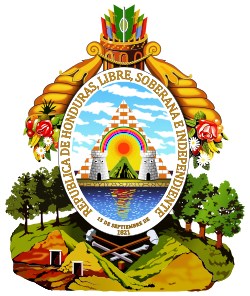 |
|---|
General elections were held in Honduras in October 1915. [1] Francisco Bertrand of the National Party was the only candidate in the presidential election, and was elected unopposed. [2] As the incumbent, Bertrand had been constitutionally barred from contesting the elections, but had avoided the rule by resigning in favour of his vice president Alberto Membreño three months before the election. [3]